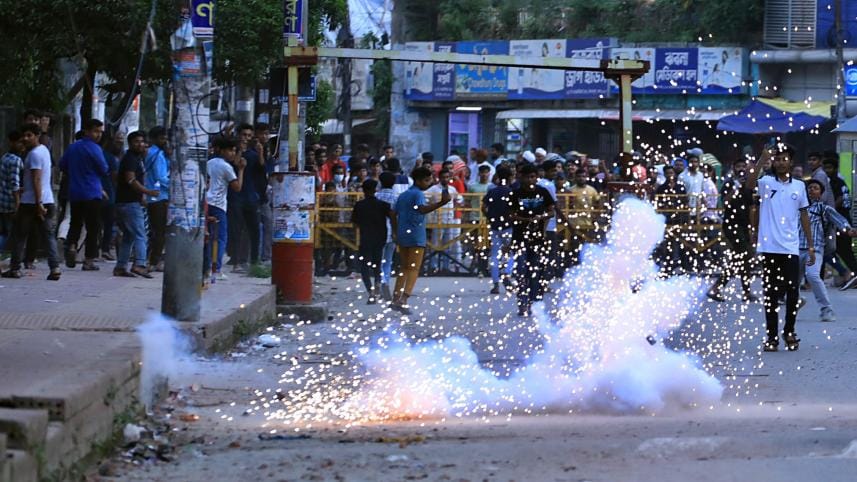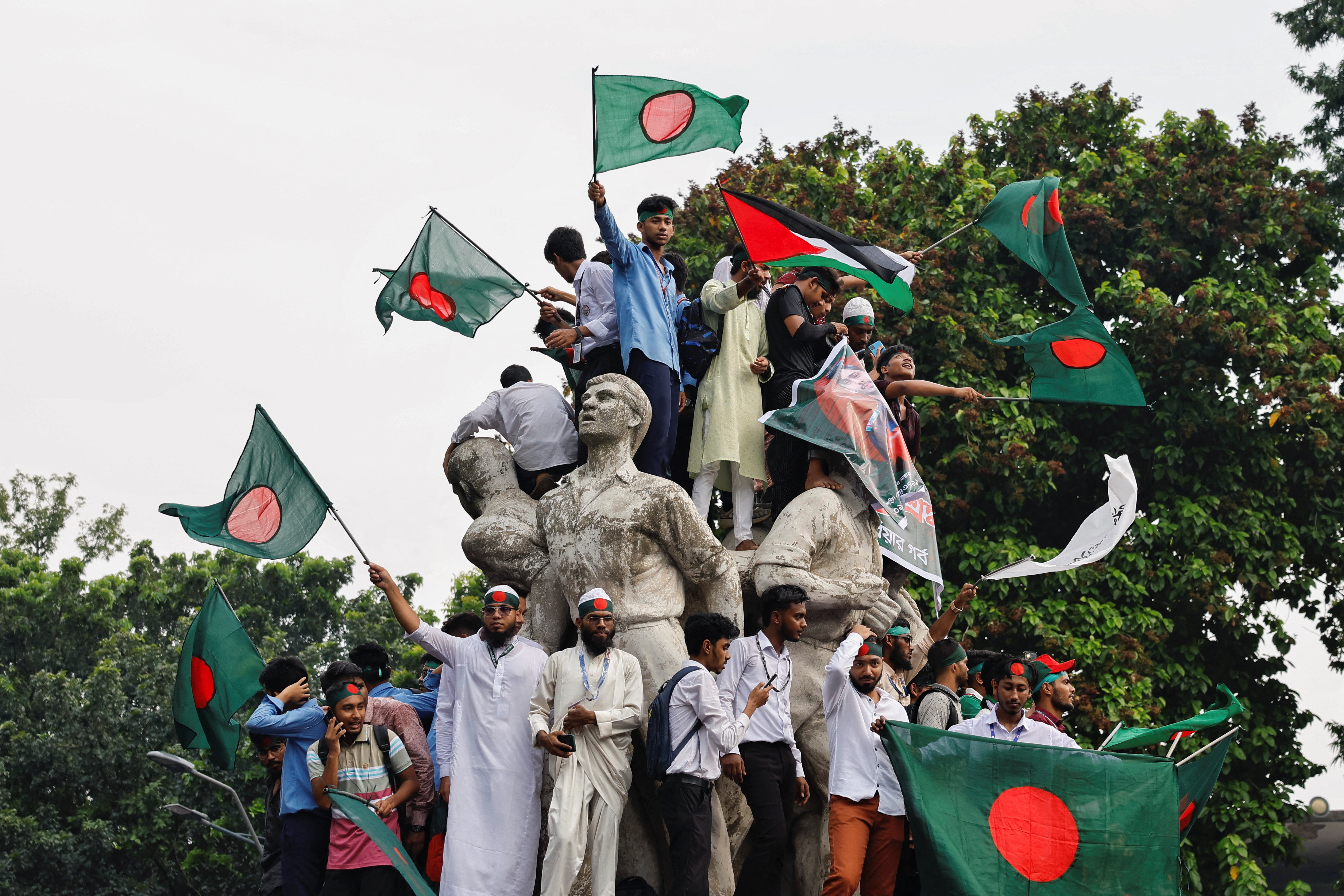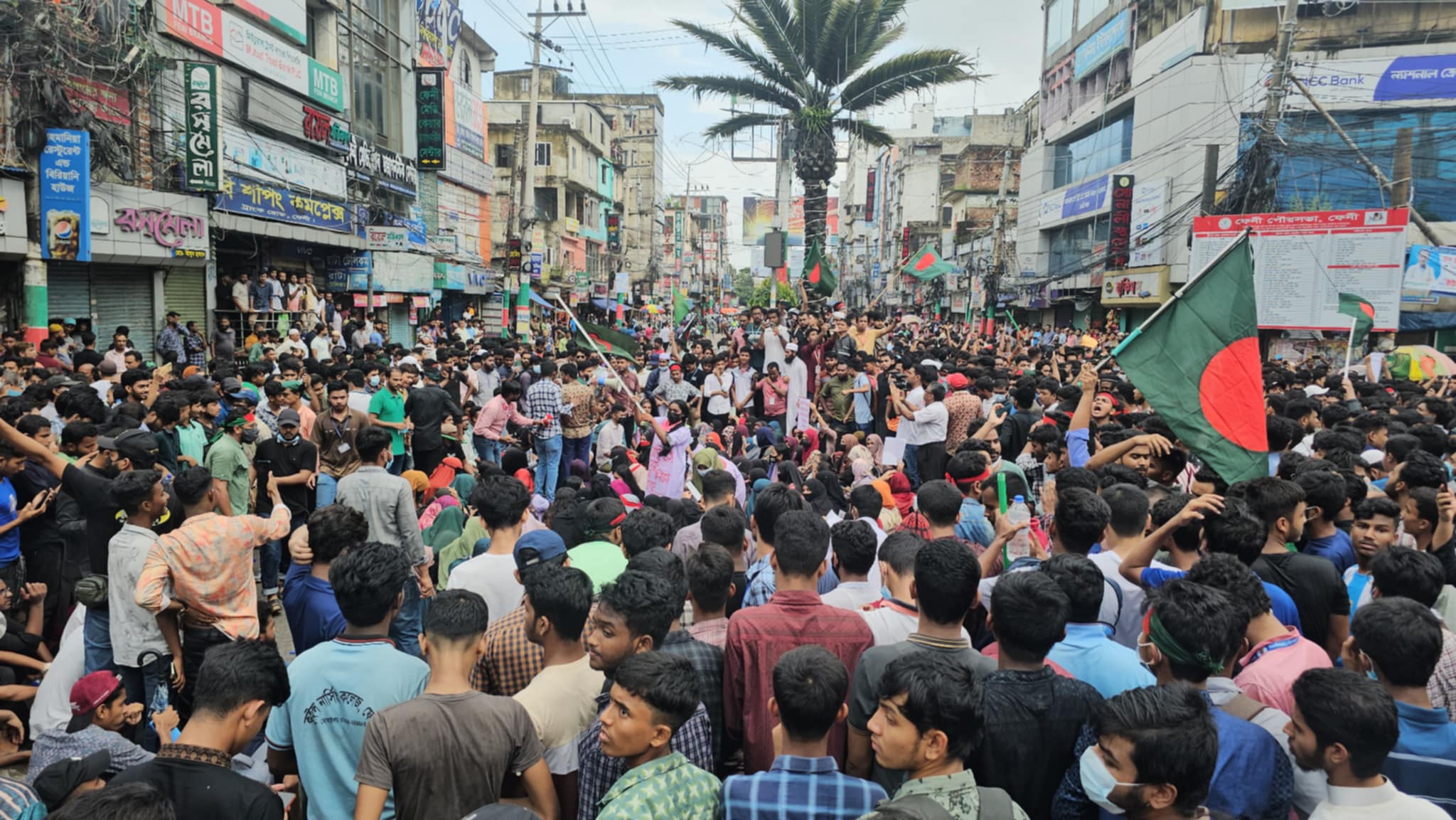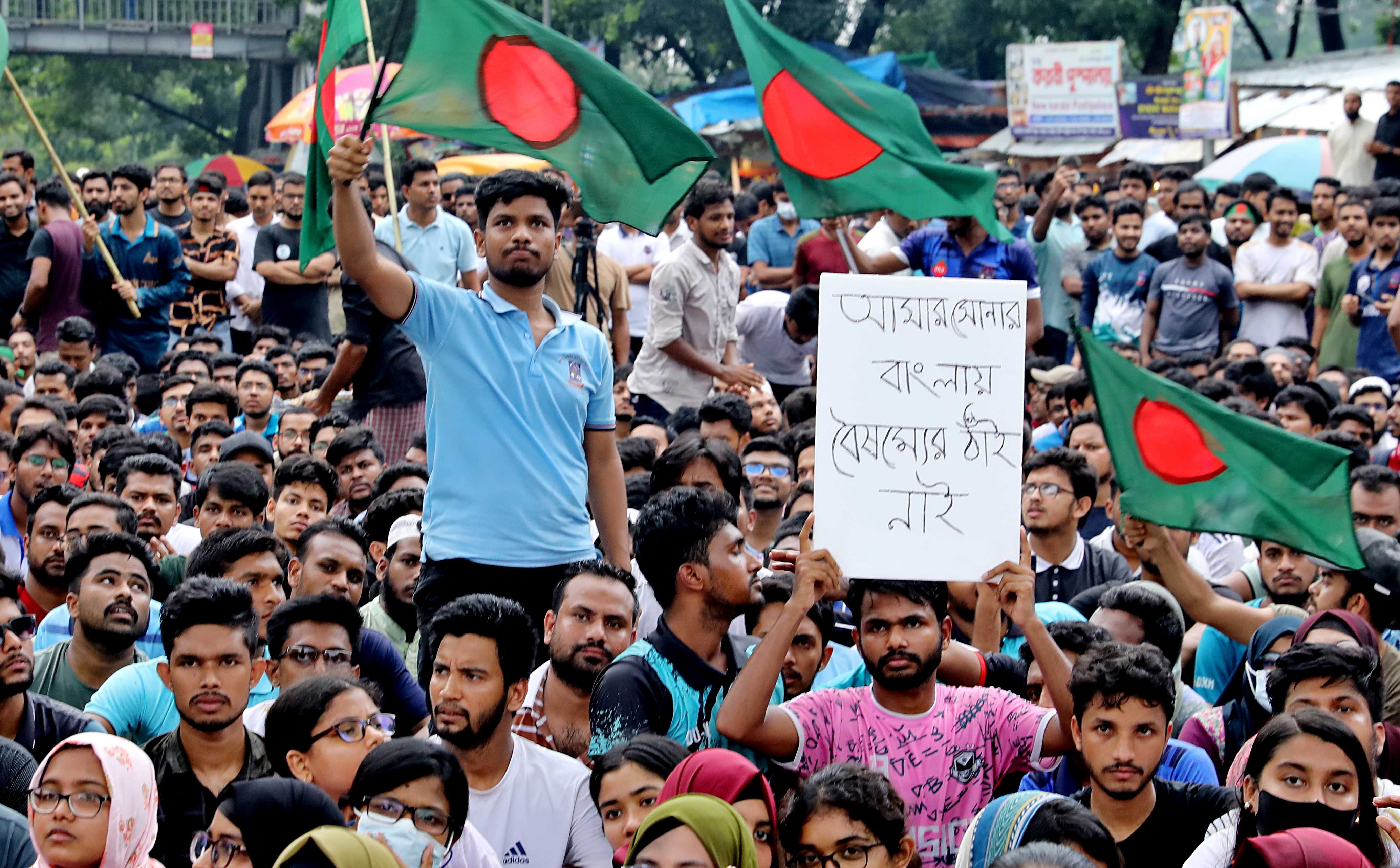Nightmares of sleepless nights

Zakir Shikder could tell from the grinding noise of the bone saw that he was losing a part of his body. His leg was being amputated. A couple of days ago, he had found himself amid thousands of others like him, protesting against the tyranny of Sheikh Hasina, who was directing the use of lethal weapons on the very people she had sworn to protect. One of the bullets fired from one of those lethal weapons would pierce through the bones of Zakir. The emptiness below his left thigh would forever remind him of the July of 2024.
Zakir would live to tell his horrific story. Sohel would not. He, too, was shot during those fateful days. Like so many others, he feared his parents would not allow him to join the protests, so he pretended he was going to the Jumma. Usually, he would don a panjabi for the Friday prayers. On that day, he wore a shirt instead—never to return home. Nupur, Sohel's sister, recollected his last moments at a Dhaka hospital. As they waited for his turn to get into the OT, Sohel asked, "Is Ma too mad at me for getting shot like this?" But at the same time, he was proud, because he was struggling for his country. Nupur soon realised her sandals were getting soaked with blood on the floor. Her brother's blood—and the blood of many, many others—who dared to tread the path to freedom.
Naima, a teenager, was eager to join the protests. Her mother Aynun Nahar, fearing the worst, would not agree. Naima, inquisitive as ever, was on the balcony when she heard gunshots. Instinctively, she started capturing footage of the shooting on her mobile phone. Her ever-protective mother was right behind her, believing she was safe inside her home. She could never have guessed what was to come. Moments later, a bullet would penetrate Naima's skull; her brain would be spattered all over the balcony. The blood gushing from her daughter's shattered skull is still vivid in Aynun Nahar's memory.
These are the stories of myriad families who faced a war waged by a ruler against her own people. A war that was thrust upon us because our children refused to be humiliated at the whim of a dictator. An unjust war, where on the one side were pistols, shotguns, machine guns even, and on the other, there were just pebbles and sticks. Yet, we fought, and we won!
But the victory has come at a hefty price. A part of this is visible in the lives lost, in the visions that were blinded, in the limbs that were severed from many bodies. But the weight of sleepless nights—of survivors and grieving relatives like Zakir, Nupur, or Aynun Nahar—is something that can only be felt by those who continue to relive the horrors of July 2024. And that number, I fear, is not small.
July is the month of pride, the month of triumph against tyranny, and yet July is the month of irreparable trauma for the whole nation. Many of those who were on the streets have witnessed first-hand the death of their comrades. Almost the entire nation became a witness to the horrors via social media. When we close our eyes, it doesn't feel like a year has passed since the blood-drenched hospital floors of July 2024, or the sight of Nafiz hanging from that rickshaw, his blood dripping. It feels very much like the present. Sometimes it even feels like we are entrapped in an endless cycle of blood and death.
This trauma presents itself every day in diverse reiterations: when we overreact on social media with vulgar slurs, when we share horrific footage of burnt children without considering the consequences for their families, or for other children who might come across it. We are in a state of constant irritability, almost at daggers drawn, be it in the political arena or in our bedrooms.
I believe we are failing to realise that as a nation we need to heal. We need to heal the wounds for us to be able to move towards the future. Of course, we need to ensure justice for the July massacre. We need to agree upon the basic structural reforms for better governance. But more than anything, we need to be able to think straight without the overwhelming burden of nightmares that continue to haunt us.
As we continue to be shaken to our core by the images of children being starved to death in Gaza, let us admit: we live in an unjust world. Our leaders have forged a world order where reason and sensibility are in retreat. Yet, our own small nation has become a beacon of hope for the whole world. We have shown the world how the powerless can be victorious against all odds. Let us now show the world that we can heal our wounds, and pave the way for a world where things make a little more sense.
Manzur-al-Matin is an advocate of the Supreme Court and a freelance anchor at Channel 24.
Views expressed in this article are the author's own.
Follow The Daily Star Opinion on Facebook for the latest opinions, commentaries and analyses by experts and professionals. To contribute your article or letter to The Daily Star Opinion, see our guidelines for submission.




 For all latest news, follow The Daily Star's Google News channel.
For all latest news, follow The Daily Star's Google News channel. 


Comments